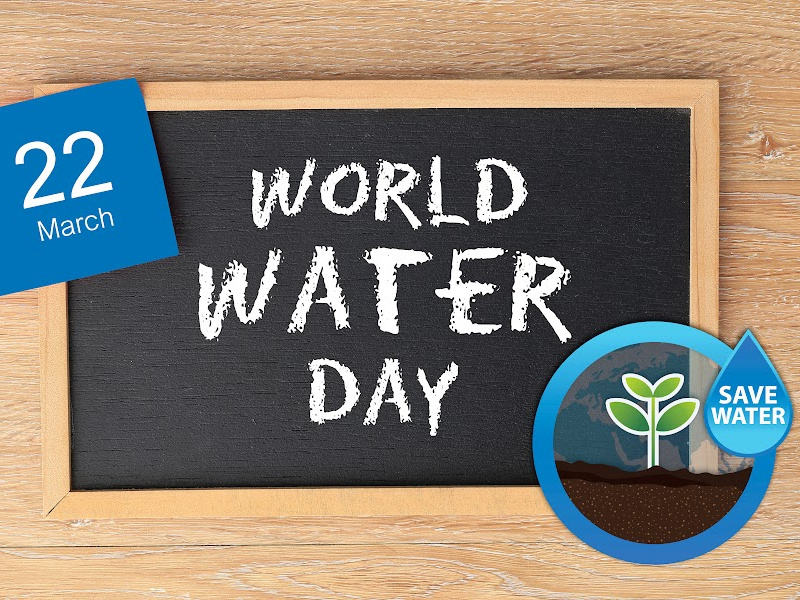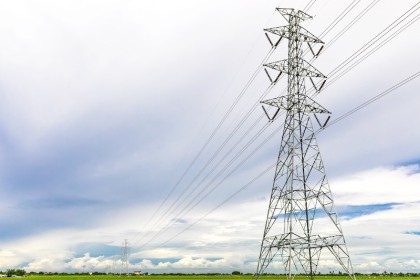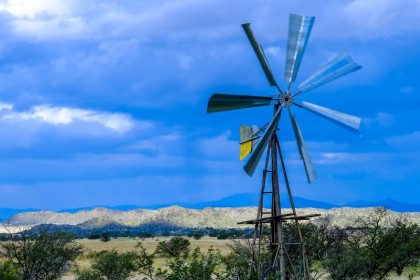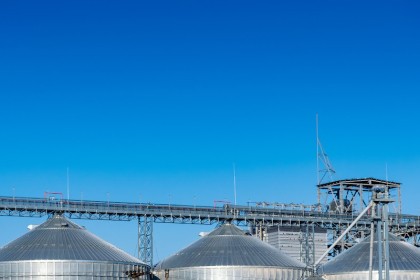
World Water Day: Industrial Farming’s Assault On Fresh Water Must End
In advance of World Water Day on Wednesday 22 March, experts are warning that time is running out - we must stop industrial farming’s assault on fresh water supplies before it’s too late.
Compassion in World Farming, organisers of the Extinction or Regeneration conference, and experts speaking at the ground-breaking international event are calling for an end to water-polluting industrial farming and a shift to global practices that are climate and nature-friendly to protect precious fresh water supplies. As extreme weather events and growing populations put additional pressure on freshwater resources, it is clear a change is needed to the world’s water use if we are to avoid running out.
Dr Susan Chomba, Director Vital Landscapes, World Resources Institute, said: “Drought is getting more severe and more frequent across the continent of Africa. There is water mismanagement and overemphasis on underground water extraction through bore holes, as opposed to integrated watershed management. The wrong kind of crops are being grown to address food and nutritional security. Pesticides and fertilisers are polluting the water to the extent that it is harmful for human consumption. What’s needed is an acceleration of policies to transform farming systems, treat wastewater, along with better information for people about the dangers of ‘cookie-cutter’ practices of industrial farming.”
In the UK and Europe, animal excrement from factory farms washes into streams and rivers where it kills precious marine life. In Africa, tonnes of valuable topsoil saturated with fertilisers erodes into river systems and hydroelectricity plants. In North America nitrogen from ‘mega-farms’ runs into rivers and ends up in the Gulf of Mexico, creating ‘dead zones’ where nothing can live.
Dr Rattan Lal, Director, Rattan Lal Center for Carbon Management and Sequestration, School of Environment and Natural Resources, The Ohio State University said: “Water quality, soil health and nutrition are all linked, we have to address these issues together. The science and knowledge to solve these problems exists, we can stop poisoning our soils and water and return them to nature whilst maintaining global food security. We can lessen extreme flooding and better manage irrigation of crops. We can encourage more carbon sequestration through water (and soil) but we need the policy to catch up with the science. The aggravating intensity and frequency of the drought-flood syndrome by anthropogenic climate change must be effectively addressed through harnessing the high freshwater storage capacity and renewability of world soils by policies which promote re-carbonization of the depleted and degraded soils for strengthening the soil-water-nexus.”
Some 70 per cent of the planet’s surface is covered with water but only one per cent of it is accessible fresh water. This water is vital to human health and wellbeing, biodiversity, energy and food production, healthy ecosystems, and more. Yet, agriculture uses an astonishing 70% of all fresh water worldwide, and around a third of the water in agriculture is linked to meat and dairy production.
The water footprint of animal products is larger than for crop products with equivalent nutritional value[i]. Research shows generally factory farmed meat and milk uses and pollutes more surface and groundwater than meat and milk from grazing or mixed systems. Moreover, the water footprint of any animal product is larger than the water footprint of crop products with equivalent nutritional value.[ii]
Philip Lymbery, Global CEO of Compassion in World Farming and award-winning author of books including Sixty Harvests Left and Dead Zone: Where the wild things were, examining the impacts of industrial animal agriculture on people, animals and the environment, said: “I have seen for myself the devastating impacts that pollution from factory farming has on our precious waterways around the globe. It creates ‘dead zones’ in our rivers and oceans where nothing can live. We must start farming in ways that benefit nature rather than damaging it. For too long, food production has ignored the fact that, without care, finite resources like water will eventually run out. We need solutions, and fast. But there is hope – by bringing together some of the world’s best thinkers and experts at the forthcoming Extinction or Regeneration conference we can explore the solutions and help create a roadmap towards a global food system that works for human, animal and planetary health.”
Jennifer Jacquet, Associate Professor of Environmental Studies at New York University and author of ‘The Playbook: How to Deny Science, Sell Lies, and Make a Killing in the Corporate World’ adds: “Animal agriculture has increased greenhouse gases, as well as nitrogen and phosphorous pollution, both of which contribute to the rise of ocean ‘dead zones’ where there is no oxygen and therefore no life. Dead zones are ocean habitats that have been lost for wild aquatic animals. These links between industrial farming practices that pollute the environment, including fresh and marine waters, mean terrible lives for animals on factory farms, but also negative consequences for the lives of wild animals we also care about. We need immediate action to regulate industrial animal agriculture, and to reduce consumption of factory-farmed meat.”
The hybrid Extinction or Regeneration conference is organised by Compassion in World Farming and a number of other partners. It will be held at the QEII Conference Centre in London and online on 11 and 12 May 2023. The event will offer individuals, organisations, companies and other experts the opportunity to present solutions across environmental, public health, food business, food policy, conservation, finance and animal welfare concerns to fix our broken food system.
For further information about the event and to register visit: www.extinctionconference.com












